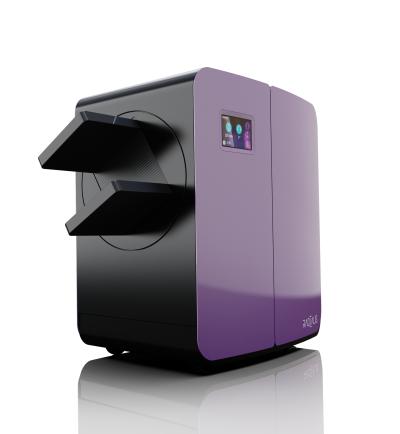Positron emission tomography (PET) imaging typically requires a bulky machine with a doughnut-shaped scanner through which a patient passes on a movable bed.
A system newly cleared by the FDA, however, adjusts to the patient, rather than the other way around. Radialis’ PET imager is portable—thanks to its attached wheels—and compact, measuring in at just four-and-a-half feet high and six feet deep.
According to the Canadian devicemaker, because the Radialis system narrows its field of view to encompass only a specific organ or area of the body, it can return higher-quality images than whole-body PET scans. It’s also especially sensitive to injected radiotracers: Radialis says its machine can collect 10 times more imaging data than other high-tech PET scanners.

The system features two planar detectors that can be rotated, moved higher or lower and spread to different widths as necessary. Those adjustments allow the scanner to be used on patients who are sitting, standing or lying down, and for a variety of scans—from mammography to neurology to cardiology.
Once the specified area is within the imager’s field of view, it detects any positron-emitting radiotracer to narrow in on an area of concern. The system then churns out high-resolution images of the area, with the ability to single out objects as small as 1.3 millimeters.
Radialis’ scanner was cleared by the FDA specifically to image and measure injected radiotracers to help determine various metabolic and physiologic functions of the body. In particular, the company said it’s hoping to see its organ-targeted approach to PET scanning become a go-to method for early detection of hard-to-spot diseases.
That aim is being helped along by a venture funding round that Radialis closed in May. Though the company didn’t disclose the total fundraising amount, CEO Michael Waterston noted at the time that it would be used to ready the company for the commercial launch of its PET imager.